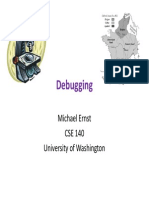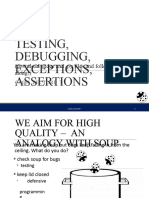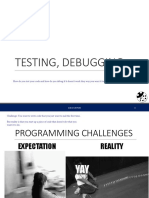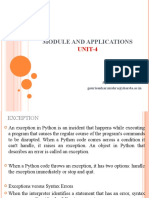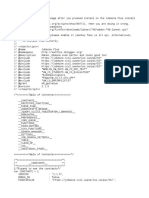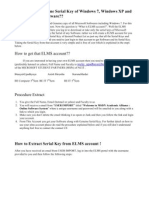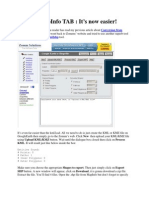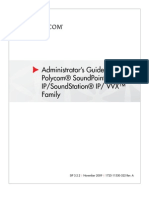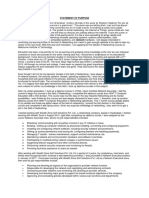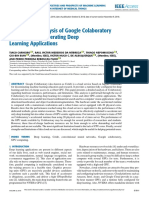0% found this document useful (0 votes)
6 views8 pagesDebugging and Testing - Finding and Preventing Errors
The document provides an overview of debugging and testing in programming, detailing types of errors such as syntax, runtime, and logic errors. It outlines various debugging strategies, exception handling techniques, and testing methods including manual testing, unit testing, and test-driven development. Additionally, it emphasizes best practices for debugging and testing, common mistakes to avoid, and resources for effective debugging.
Uploaded by
M YasirCopyright
© © All Rights Reserved
We take content rights seriously. If you suspect this is your content, claim it here.
Available Formats
Download as PDF, TXT or read online on Scribd
0% found this document useful (0 votes)
6 views8 pagesDebugging and Testing - Finding and Preventing Errors
The document provides an overview of debugging and testing in programming, detailing types of errors such as syntax, runtime, and logic errors. It outlines various debugging strategies, exception handling techniques, and testing methods including manual testing, unit testing, and test-driven development. Additionally, it emphasizes best practices for debugging and testing, common mistakes to avoid, and resources for effective debugging.
Uploaded by
M YasirCopyright
© © All Rights Reserved
We take content rights seriously. If you suspect this is your content, claim it here.
Available Formats
Download as PDF, TXT or read online on Scribd
/ 8
